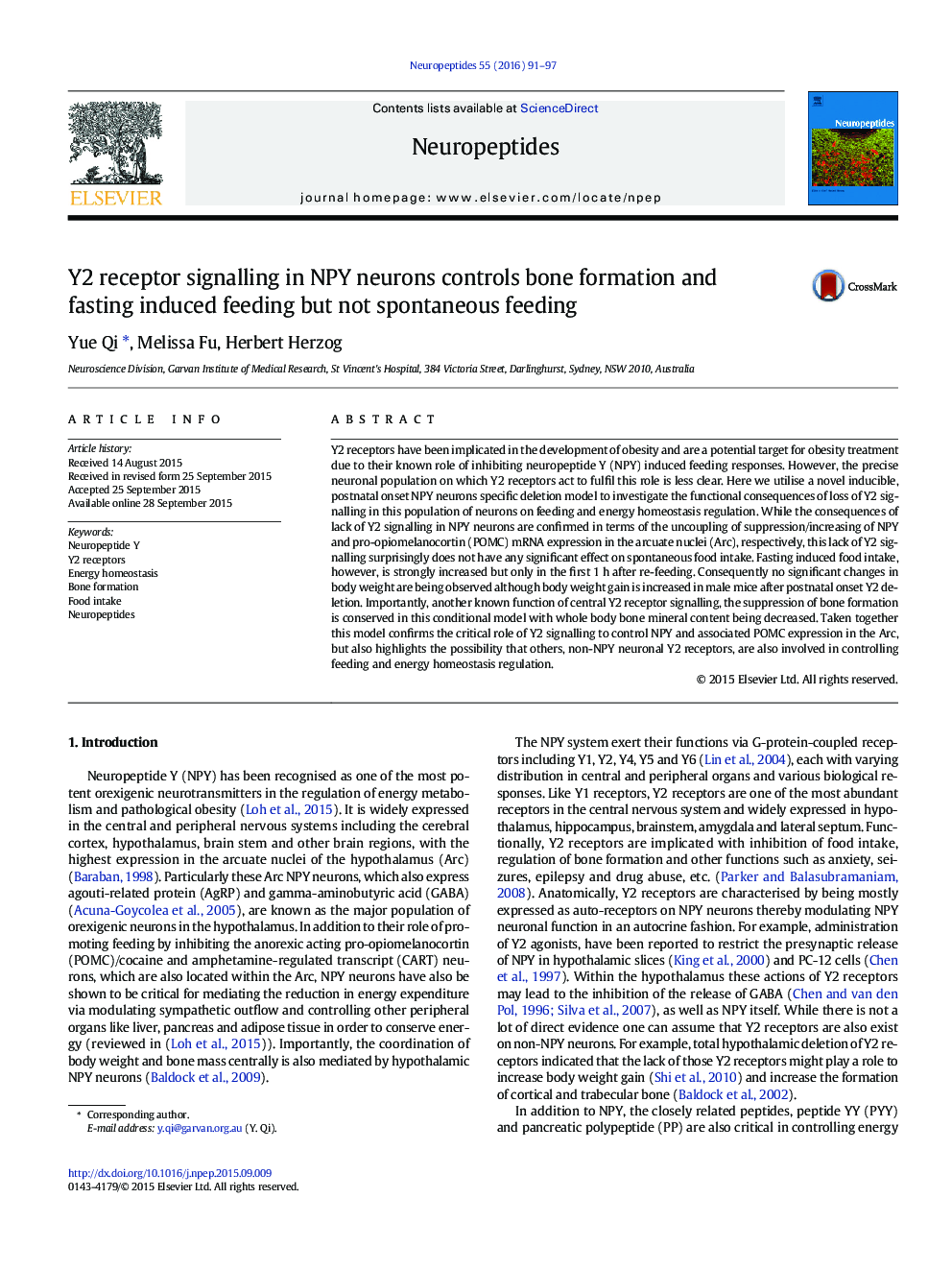| Article ID | Journal | Published Year | Pages | File Type |
|---|---|---|---|---|
| 5904268 | Neuropeptides | 2016 | 7 Pages |
Abstract
Y2 receptors have been implicated in the development of obesity and are a potential target for obesity treatment due to their known role of inhibiting neuropeptide Y (NPY) induced feeding responses. However, the precise neuronal population on which Y2 receptors act to fulfil this role is less clear. Here we utilise a novel inducible, postnatal onset NPY neurons specific deletion model to investigate the functional consequences of loss of Y2 signalling in this population of neurons on feeding and energy homeostasis regulation. While the consequences of lack of Y2 signalling in NPY neurons are confirmed in terms of the uncoupling of suppression/increasing of NPY and pro-opiomelanocortin (POMC) mRNA expression in the arcuate nuclei (Arc), respectively, this lack of Y2 signalling surprisingly does not have any significant effect on spontaneous food intake. Fasting induced food intake, however, is strongly increased but only in the first 1Â h after re-feeding. Consequently no significant changes in body weight are being observed although body weight gain is increased in male mice after postnatal onset Y2 deletion. Importantly, another known function of central Y2 receptor signalling, the suppression of bone formation is conserved in this conditional model with whole body bone mineral content being decreased. Taken together this model confirms the critical role of Y2 signalling to control NPY and associated POMC expression in the Arc, but also highlights the possibility that others, non-NPY neuronal Y2 receptors, are also involved in controlling feeding and energy homeostasis regulation.
Related Topics
Life Sciences
Biochemistry, Genetics and Molecular Biology
Endocrinology
Authors
Yue Qi, Melissa Fu, Herbert Herzog,
